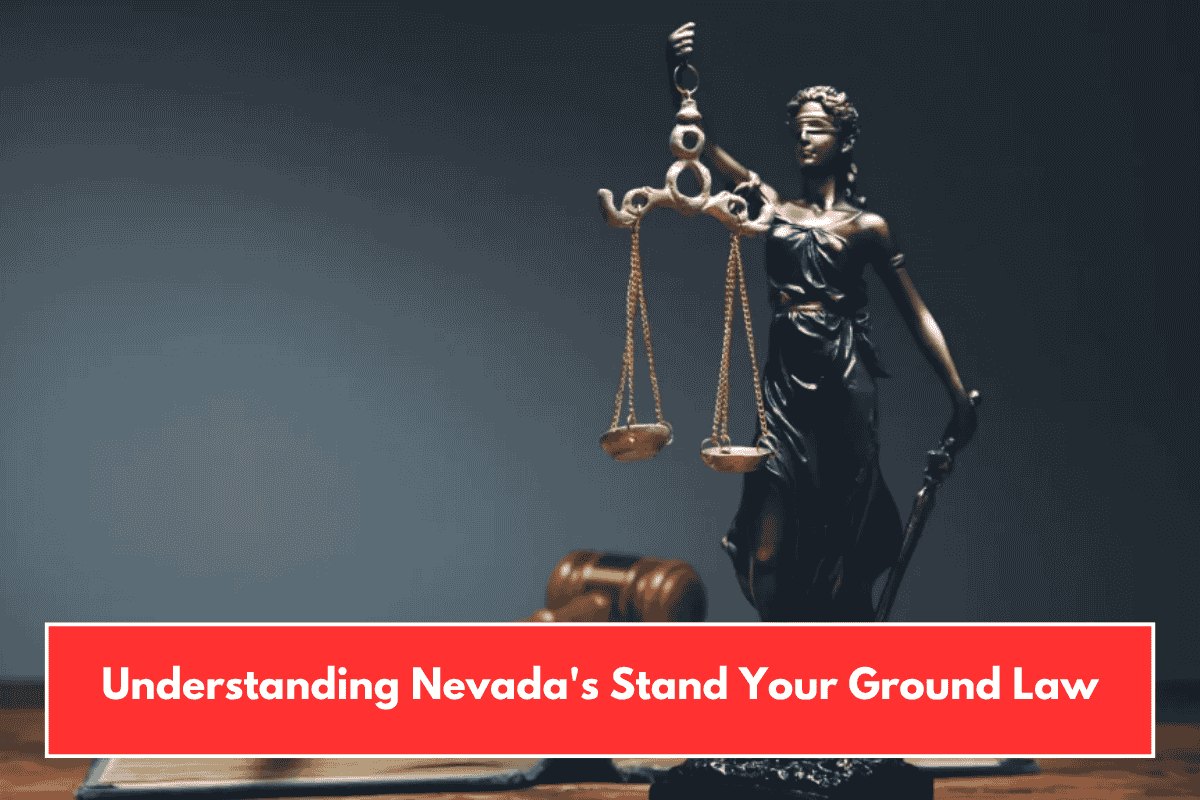Nevada is a “stand your ground” state, meaning individuals have no legal duty to retreat before using deadly force in self-defense, as long as certain conditions are met.
Key Provisions of the Law:
- You may use deadly force in self-defense if:
- You reasonably believe you or someone else faces immediate death or serious bodily harm.
- You are not the initial aggressor in the conflict.
- You are not engaged in illegal activity at the time.
- You are in a place where you have a legal right to be.
- There is no duty to retreat from a threat before using force, even if you could safely escape the situation.
- The use of force must be reasonable and proportional to the threat faced. Deadly force is only justified in response to an imminent threat of serious bodily harm or death—not for minor threats or property crimes.
Castle Doctrine vs. Stand Your Ground
| Feature | Stand Your Ground Law | Castle Doctrine |
|---|---|---|
| Duty to Retreat | No duty to retreat in public or private places. | No duty to retreat inside your home or vehicle. |
| When Deadly Force Permitted | Only if facing imminent threat of serious harm or death. | Permitted if someone unlawfully enters your home/vehicle and you believe they intend violence. |
| Scope | Applies anywhere you have a legal right to be. | Applies specifically to your home or vehicle. |
- The Castle Doctrine in Nevada allows for even broader use of deadly force inside your home or vehicle, permitting you to act as soon as someone unlawfully tries to enter, if you reasonably believe they have violent intentions.
Limitations and Exceptions
- Stand your ground does not justify deadly force to stop nonviolent crimes, such as theft without threat of violence.
- The law does not protect those who are the initial aggressors or those committing a crime at the time of the incident.
- The “reasonable person” standard applies: your belief in the need for deadly force must be objectively reasonable, not just a subjective fear.
Nevada’s stand your ground law allows individuals to use deadly force in self-defense without a duty to retreat, provided they are not the aggressor, not committing a crime, and are in a place they have a legal right to be. The force used must be reasonable and proportional to the threat. The Castle Doctrine offers even stronger protections inside the home or vehicle.
SOURCES
[1] https://www.shouselaw.com/nv/blog/criminal-defense/is-nevada-a-stand-your-ground-state/
[2] https://giffords.org/lawcenter/state-laws/stand-your-ground-in-nevada/
[3] https://www.lvcriminaldefense.com/nevadas-self-defense-and-stand-your-ground-laws/
[4] https://en.wikipedia.org/wiki/Stand-your-ground_law
[5] https://harrislawyers.com/nevada-stand-your-ground-law/














